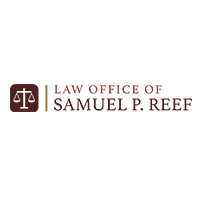Sharon Divorce & Family Law Lawyer, Massachusetts
Sponsored Law Firm
-
 x
x

Click For More Info:
-
Law Office of William Kevin Brown
74 Pleasant Street Weymouth, MA» view mapDivorce, Child Support, Child Custody Highly Effective and Experienced
We are experienced in dealing with the intricacies of the law and the court system in Massachusetts and beyond.
800-923-4121
Samuel P. Reef
✓ VERIFIEDCar Accident, Bankruptcy, Divorce, DUI-DWI
Samuel Reef is a practicing lawyer in the state of Massachusetts. He received his J.D. from Suffolk University Law School in 1994. He currently works ... (more)
William J. Gillespie
✓ VERIFIEDAccident & Injury, Criminal, Divorce & Family Law, Immigration, Motor Vehicle
If you or someone you know needs legal expertise in these areas, you want Attorney William J. Gillespie working for you. He has been in practice since... (more)
FREE CONSULTATION
CONTACTFREE CONSULTATION
CONTACTFREE CONSULTATION
CONTACTRobert Holmes Fennessy, Jr.
Divorce & Family Law, Employment, Consumer Rights, Estate Planning
Status: In Good Standing
Morgan Bernal
Estate Planning, Domestic Violence & Neglect, Family Law, Divorce
Status: In Good Standing
Beth M. Nussbaum
Federal Appellate Practice, Family Law, Child Custody, Divorce & Family Law
Status: In Good Standing
 William Brown South Weymouth, MA
William Brown South Weymouth, MA AboutLaw Office of William Kevin Brown
AboutLaw Office of William Kevin Brown Practice AreasSpecializations
Practice AreasSpecializations


